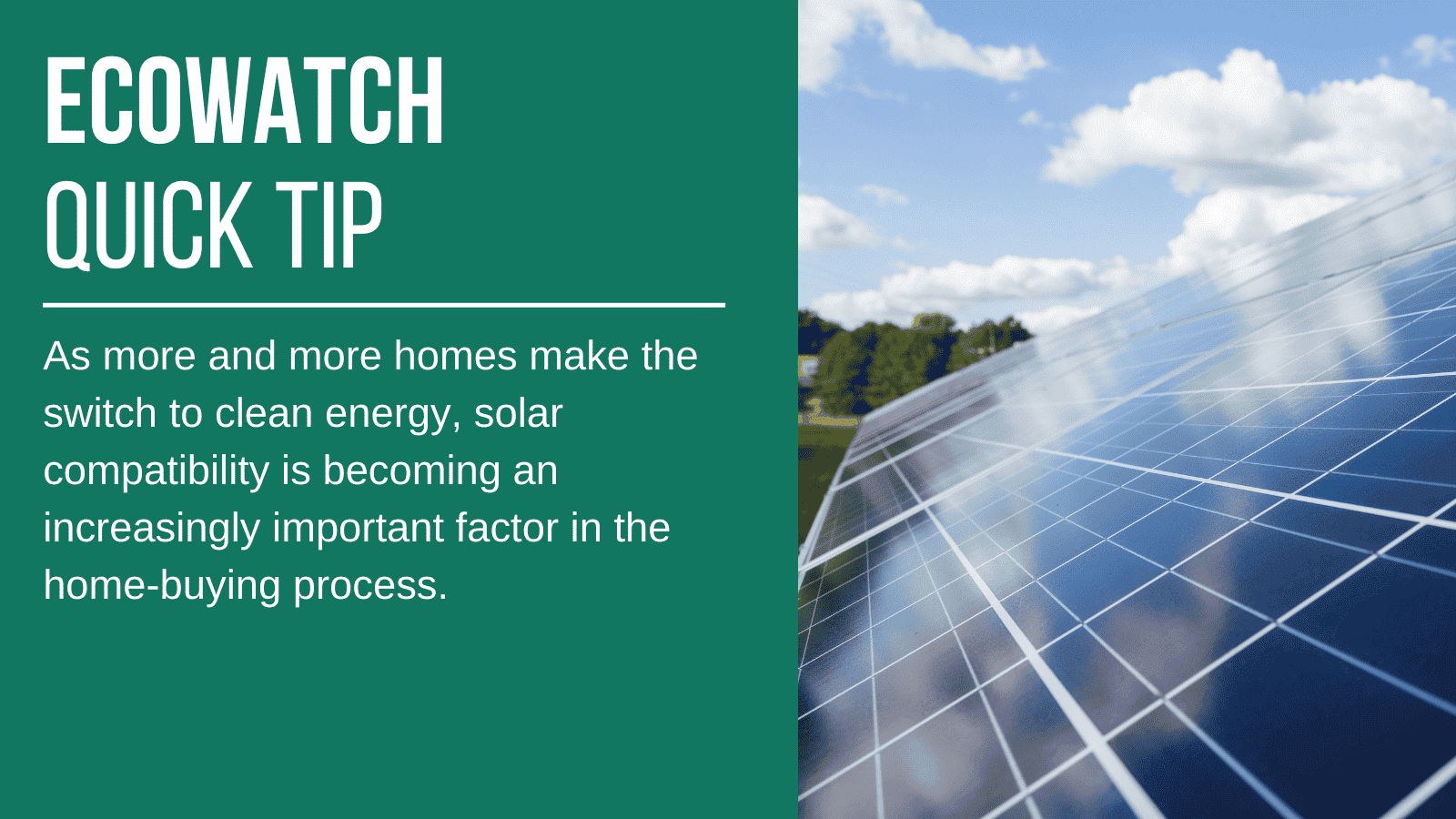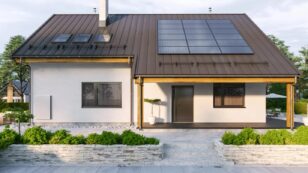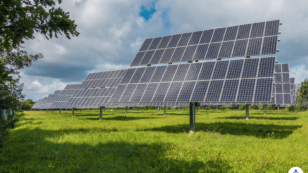 Reviews
Reviews
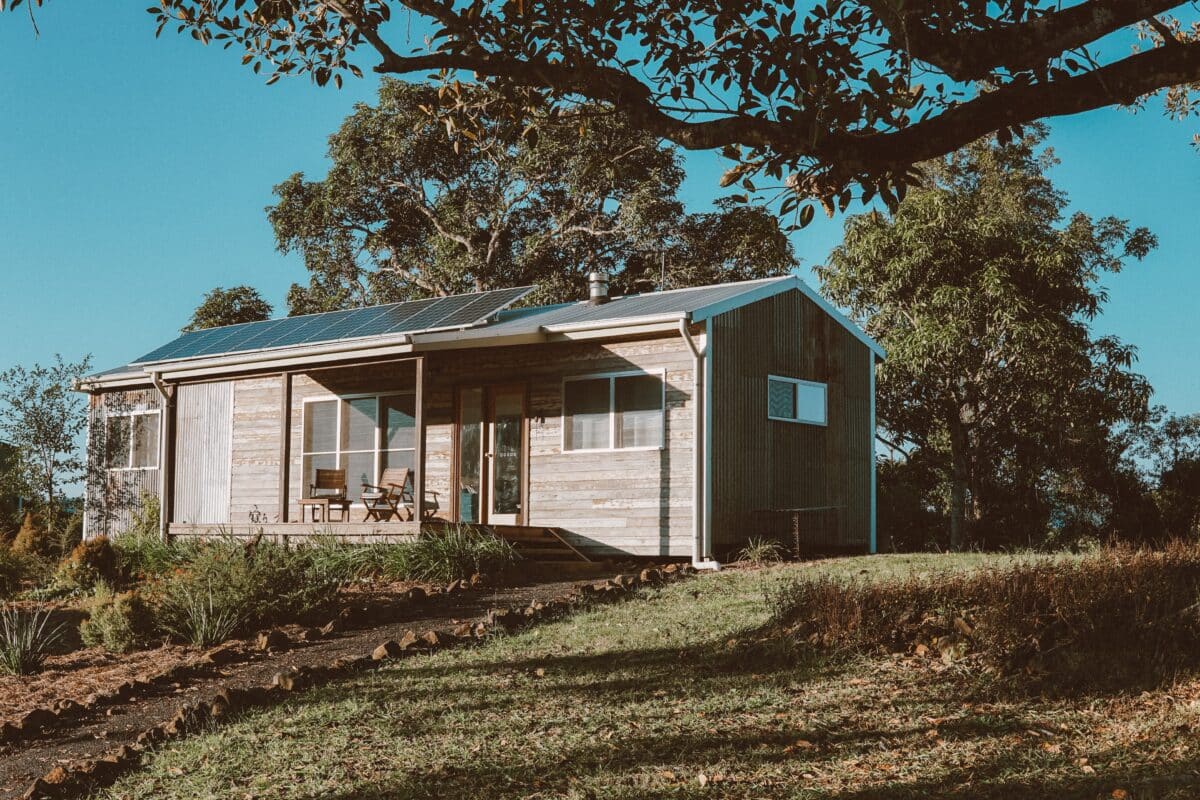
Sun Number Score Guide: How to Understand Sun Numbers (2024)
Here’s what we’ll cover in this guide:
- What was a Sun Number?
- What did a home’s Sun Number mean?
- How was a Sun Number score calculated?
- The importance of Sun Numbers
Each product and or company featured here has been independently selected by the writer. You can learn more about our review methodology here. If you make a purchase using the links included, we may earn commission.
What Is a Sun Number?
Installing high-quality solar panels is a great way to save money on your electricity bill while protecting the environment. But it’s hard to know exactly how well solar would work on your home. Zillow’s Sun Number scores were once a great tool for homeowners to get a quick glimpse of a home’s solar potential.
Sun Number facts at a glance:
- Over 84 million homes on Zillow had a Sun Number as of 2017.1
- The calculations behind the Sun Number were developed with the help of the U.S. Department of Energy’s Sunshot Grant.2
- A Zillow analysis shows homes with solar-energy systems sold for 4.1% more on average than others nationwide in 2019.3
- The higher the Sun Number, the better the conditions are for solar panel installations.
- Zillow no longer features Sun Numbers.
Although Zillow no longer features Sun Numbers, this guide will help you understand the factors behind what makes a home suitable for a solar system.
Your home’s sun score was just one of many ways to measure your property’s solar suitability. The best way to understand how much solar potential your property has is to compare solar quotes from reliable and qualified installation companies.

Blue Raven Solar
Pros
- Industry-leading in-house financing
- Competitive pricing
- Excellent reputation
Cons
- Doesn't offer solar batteries (coming 2022)
SunPower designs and installs industry-leading residential solar and storage solutions across all 50 states. With a storied history of innovation dating back to 1985, no other company on this list can match SunPower’s experience and expertise.
SunPower earns its position as the top national installer on our list for a handful of reasons: It installs the most efficient solar technology on the residential market, offers the most expansive service area and backs its installations with a warranty well above the industry standard. All the while, SunPower pioneers sustainability efforts within the industry.
If that weren’t enough, SunPower systems come packaged with products all manufactured in-house by its sister company, Maxeon. This means that your panels, solar cells, inverters, battery and EV chargers are designed to work together and are all covered under the same warranty.
SunPower’s biggest downside? Its high-efficiency panels are considerably more expensive than most of its competitors’ products. However, its powerful panels are workhorses that make up for the initial cost with more backend production (think about this like spending more money for a car that gets more miles per gallon).
Facts and Figures: Blue Raven Solar
| EcoWatch Rating |
|---|
| Better Business Bureau (BBB) Rating |
| Year Founded |
| Average Cost ($-$$$$$) |
| Solar Services |
| Brands of Solar Equipment Offered |
| Warranty Coverage |
| 4.5 |
| A+ |
| 2014 |
| $$ |
| Solar Panels, System Monitoring |
| Trina Solar, Canadian Solar, SolarEdge, Silfab, SunPower |
| 25-year manufacturer warranty; 10-year workmanship warranty, 2-year production guarantee |

Blue Raven Solar
Pros
- Industry-leading in-house financing
- Competitive pricing
- Excellent reputation
Cons
- Doesn't offer solar batteries (coming 2022)
We like Blue Raven Solar because it understands that, for most homeowners, the cost of solar presents the biggest barrier to entry.
For that reason, Blue Raven Solar developed an innovative solar financing plan that offers in-house, flexible, zero-money-down options. The results speak for themselves, as Blue Raven Solar is now one of the fastest-growing solar companies in the nation and was recently acquired by SunPower. Its BluePower Plus+ plan (exclusive to Blue Raven) mimics the flexible structure of a lease while still providing the greatest benefits of owning your system.
Eligible homeowners enjoy 18 months of solar power before having to pay their first bill. When coupled with the federal solar investment tax credit (ITC), the initial energy savings can offset more than a third of the overall cost of a system before requiring a dollar down.
In contrast, other installers can only offer similar financing through solar leases, PPAs or third-party providers (such as Mosaic or Sunlight). Third-party loan providers can complicate the process, while opting for a loan or PPA will disqualify you from some of solar’s biggest benefits (additional property value, federal solar tax credit and local solar incentives).
Facts and Figures: Blue Raven Solar
| EcoWatch Rating |
|---|
| Better Business Bureau (BBB) Rating |
| Year Founded |
| Average Cost ($-$$$$$) |
| Solar Services |
| Brands of Solar Equipment Offered |
| Warranty Coverage |
| 4.5 |
| A+ |
| 2014 |
| $$ |
| Solar Panels, System Monitoring |
| Trina Solar, Canadian Solar, SolarEdge, Silfab, SunPower |
| 25-year manufacturer warranty; 10-year workmanship warranty, 2-year production guarantee |
What Does a Home’s Sun Score Mean?
Sun Numbers scored a property’s solar suitability on a scale of one to 100 for homeowners or potential home-buyers searching on Zillow. The closer the score to 100, the more compatible the property would be with solar.
This was a great tool for simplifying the solar process and increasing awareness of the importance of solar power potential in real estate. Here’s what Zillow’s Sun Number feature used to look like:
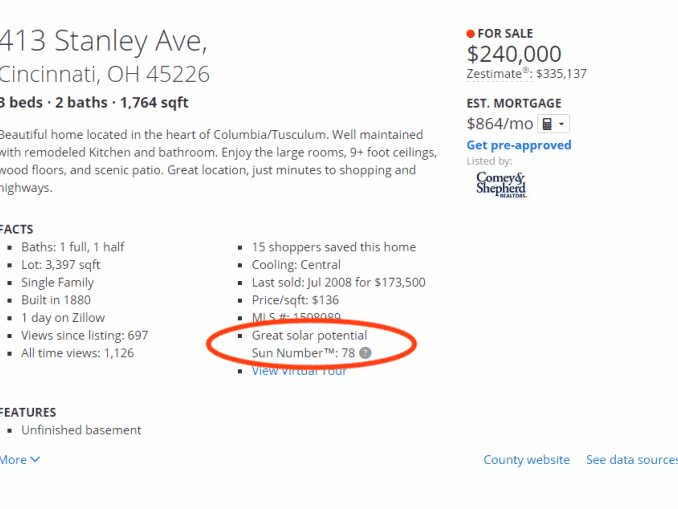
Factors Influencing a Sun Number Score
It was a bit more complicated than taking your city’s average number of sunny days and associating a number between one and 100.
Sun Number, the company that designed the technology in collaboration with the U.S. Department of Energy’s Sunshot Initiative Grant, measured several aspects of your home before settling on a score.4 Here are some of the measurable data points analyzed to calculate a property’s sun score:
- The area of your roof capable of supporting solar panels
- The pitch, or slope, of your roof
- The orientation or direction of each roof plane
- How much direct sunlight each square meter of your roof receives (taking shading from trees and other buildings into account)
- Local cost of electricity
- Local cost of solar installations
- Local weather conditions
How Was a Sun Number Score Calculated?
The final Sun Number was the sum of four categories: Building solar score, regional climate, local electricity rates and solar cost scores.
Each category was weighted differently based on how it affected a home’s suitability for solar. A score of 100 was a perfect rating, and a Sun Number above 70 meant homeowners could still benefit from installing solar on the property.
Maximum score: 100 points
Building Solar: 80 points maximum
Regional Climate: 8 points maximum
Electricity Rate: 8 points maximum
Solar Cost: 4 points maximum
Building Solar Score
Maximum score: 80 points
The Building Solar score was the primary factor behind a home’s Sun Number. It was the most extensive and detailed part of the rating system, consisting of the following factors:
- Roof design
- Roof size
- Roof pitch
- Roof orientation
- Roof shading
As you can see, it’s all about the roof. South-facing roofs with lots of space provide the most ideal conditions for rooftop solar panels. South-facing roofs see the most amount of sunlight in the northern hemisphere and therefore have the potential to generate more power. The more area a roof has, the more space there is to install solar panels. Roofs with obstructions like chimneys or skylights hurt a building’s solar score.
Sun Number provided a maximum Building Solar score of 80. It was best to have a building score no lower than 50, and a score above 60 was considered a great score for the solar potential of your property.
Not every home will meet every single one of these criteria, but that doesn’t mean solar won’t still work. It may just require a more complex design or yield a lower energy output.
Regional Climate Score
Maximum score: 8 points
The amount of sunlight a roof gets directly affects how much electricity solar panels can produce. The more solar radiation an area recieved, the higher the Regional Climate score was. Sun Number used solar irradiance data from the National Renewable Energy Laboratory (NREL) to calculate a score for a home.5
A home’s score could also be affected if the residence was in a shaded area due to trees, tall surrounding buildings or other structures blocking the sun.
Electricity Rates Score
Maximum score: 8 points
Sun Number also considered the average electricity rates in the area of the home. Since solar panel systems offset a home’s energy use, they provide more energy savings in areas with high electricity rates.
Therefore, in areas where the price of electricity is high, the Sun Number score was higher. Where electric prices are low, the Sun Number would take a dip.
Solar Cost Score
Maximum score: 4 points
Finally, Sun Number considered local solar installation prices when crafting a home’s sun score. It’s important to note that this section made up the smallest portion of a home’s total score.
Much like the Regional Climate score, Sun Number used NREL to find local solar costs.6 The costs had an inverse effect on a total score, with lower local installation costs leading to a higher Solar Cost score.
The Importance of Sun Number Scores
Although Zillow no longer features Sun Number scores (at least at the time this article was written), they were important because they gave homeowners an easy understanding of how viable solar was for their property. They were also an excellent step in promoting awareness of solar energy’s growing importance in real estate.
Solar energy is a resource like any other, and if your home enjoys a lot of sunshine, you can take advantage of it. Following the same logic of Sun Numbers, homeowners or prospective home-buyers can still piece together the solar potential of their homes. It’s already known that solar panels increase the property value of your home — and good solar potential can end up providing thousands of dollars in value down the line.
With more and more homeowners realizing that they can increase their energy independence with solar energy, the solar potential is becoming an increasingly important aspect of home buying. The best way to get an accurate assessment of your property’s solar potential, or Sun Number, is to consult a local solar company near you.
Comparing authorized solar partners
-
- Industry-leading in-house financing
- Competitive pricing
- Excellent reputation
- Doesn't offer solar batteries (coming 2022)
A+Best Solar Financing2014Trina Solar, Canadian Solar, SolarEdge, Silfab, SunPower25-year manufacturer warranty; 10-year workmanship warranty, 2-year production guarantee
Having trouble deciding? Click below and use our process to receive multiple quotes instead:

 233k
233k  41k
41k  Subscribe
Subscribe 

